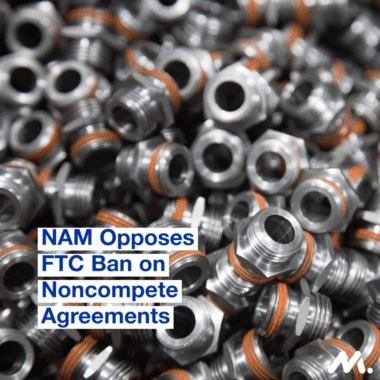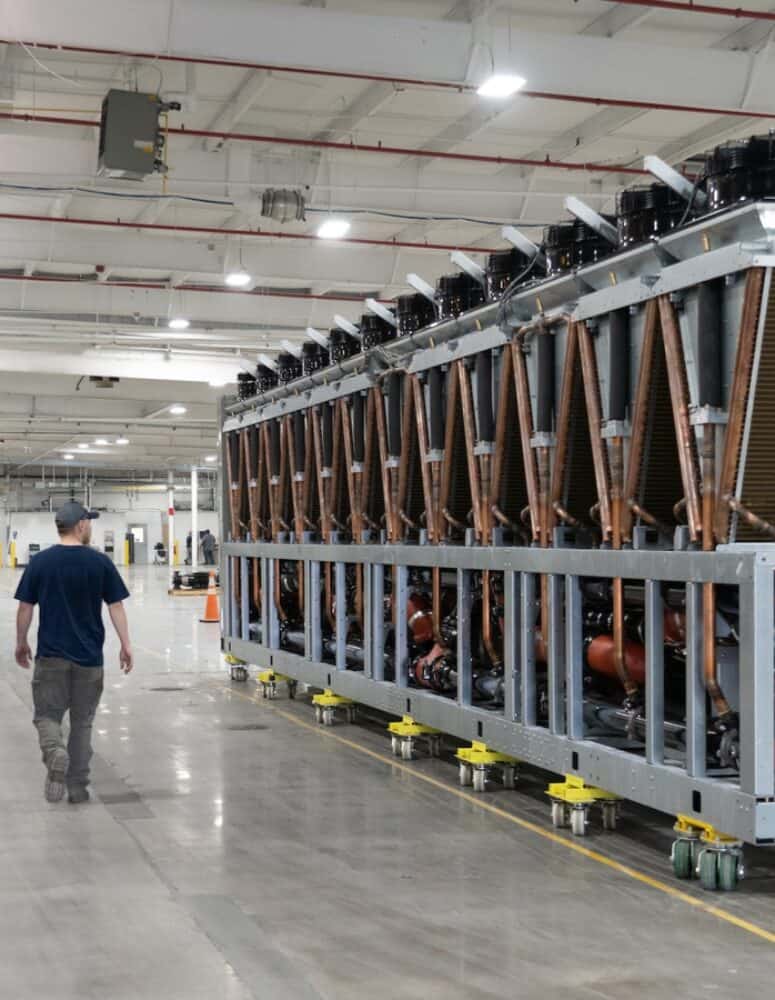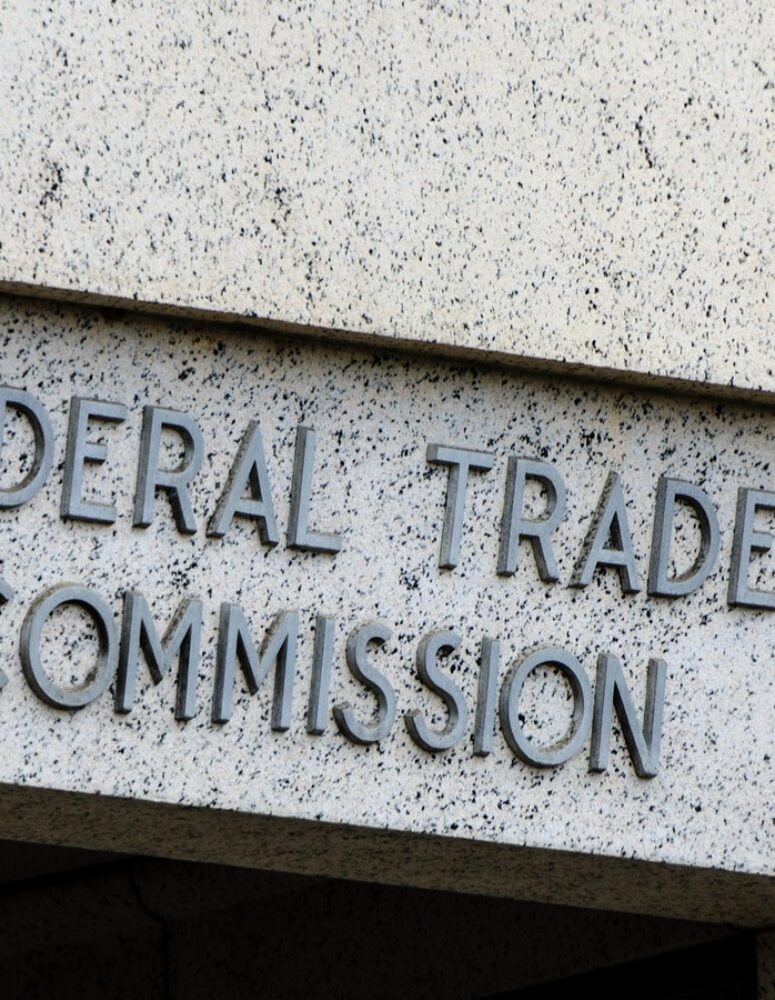What’s Going On
 The challenge: On Jan. 19, the Federal Trade Commission (FTC) formally proposed a rule that would prohibit employers from imposing noncompete agreements on workers, incorrectly stating that such agreements result in lower wages for all workers. While noncompete agreements are only used with a small percentage of workers, they are a critical tool for protecting manufacturers’ intellectual property. By banning noncompete agreements, the FTC effectively provides open access to highly important details of a company’s most sophisticated processes and strategies.
The challenge: On Jan. 19, the Federal Trade Commission (FTC) formally proposed a rule that would prohibit employers from imposing noncompete agreements on workers, incorrectly stating that such agreements result in lower wages for all workers. While noncompete agreements are only used with a small percentage of workers, they are a critical tool for protecting manufacturers’ intellectual property. By banning noncompete agreements, the FTC effectively provides open access to highly important details of a company’s most sophisticated processes and strategies.
What we’re doing about it: The NAM is exploring all possible avenues, including congressional oversight and litigation, to oppose and mitigate the impacts of the proposed ban on all noncompete agreements. We are currently requesting that the current proposal be withdrawn until the FTC can propose a more tailored approach that allows for sensible exemptions.
Quick Facts
Following feedback from manufacturers that the FTC’s proposed rule would significantly affect their business and workforce, the NAM conducted a survey on the effects that the ban on noncompete agreements would have on manufacturers. Below is a quick summary of the survey’s findings.
- 70% of Manufacturers Use Noncompetes: Approximately 70% of respondents use noncompete agreements, and the FTC’s proposed rule would ban noncompetes.
- Noncompetes Are Vital to Protecting Manufacturers’ Intellectual Property: Respondents stated that their top priorities that they protect under noncompete agreements are intellectual property (~93%), sales information (~87%), industrial processes (~72%) and business strategy (~52%).
- Key Personnel Exist at All Levels: The top positions covered under noncompete agreements are senior managers (~85%), sales employees (~75%) and engineers (~65%).
- Banning Noncompetes Will Hurt Manufacturers: The FTC’s ban of noncompete agreements would cause a disruption to approximately 66% of manufacturers. That breakdown shows that 29% of respondents would experience “moderate” effects, with another 22% and approximately 15% seeing significant and very significant effects, respectively.
- Noncompetes Are Used Responsibly and as Needed: Approximately 89% of respondents tailor their noncompete agreements to last from six months to two years. Around 51% of respondents stated that they use them for more than one year and no more than two years. Another 38% stated that they use them for six months to one year.
- A Ban Will Affect All Manufacturers: This issue affects large manufacturers and small and medium-sized manufacturers alike, with 51% of respondents representing large manufacturers and 49% representing SMMs.
- A Noncompete Ban Would Harm Future Training and Investment in Employees: Around half of manufacturers said that noncompete agreements affect their investment in training or related programs.
 From the NAM Newsroom
From the NAM Newsroom
Don’t miss the latest news and insights from the NAM newsroom and the media on manufacturers’ work to oppose the FTC’s proposed rule and protect our competitiveness.
Below are quick links to our most recent news pieces and stories related to the NAM’s advocacy on the issue.
 Become an NAM Ambassador
Become an NAM Ambassador
Become a leading voice on this issue and let the NAM help elevate your company’s advocacy in our collective effort to oppose and mitigate the impacts of the FTC’s proposed ban on all noncompete agreement.


